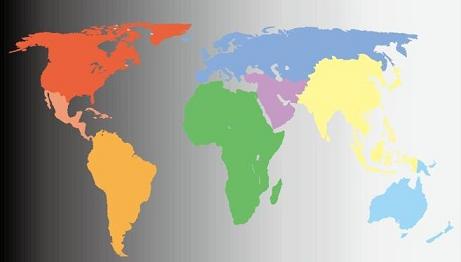New Trade Theory of International Trade takes a different approach from the Ricardian and the Heckscher-Ohlin models on why countries engage in international trade. Both Ricardo and Heckscher assumed constant returns to scale where to them if all factors of production are doubled then output will also double. But a firm or industry may have increasing returns to scale or economies of scale in way that when all factors of production are doubled, output more than doubles which will necessitate a bigger market and thus forcing firms to engage in international trade where there is a larger market. The New Trade Theorist noted that the bigger the size of a firm or industry the more the efficiency of its operations in that the the cost per unit of output falls as a firm or industry increases output.… Read the rest
International Business Basics
Staffing for Global Operations
Staffing for global operations is quite a complex affair. It involves activities on a global basis, including candidate selection, assignment terms and documentation, relocation processing and vendor management, immigration processing, cultural and language orientation and training, compensation administration and payroll processing, tax administration, career planning and development, and handling of spouse and dependent matters. In global staffing, companies need to choose from various types of global staff members and need to have specific approaches and strategies to global staffing. Global staff members are selected from among three different types: expatriates, host-country people and third-country nationals. Expatriate is a person who belongs to the country in which the organization is headquartered and not a citizen of the country in which the company operates.… Read the rest
Decision Making Process in Management
Decision making process is an important part of new era management. This is the main function of management where the manager responsibility to make a best decision. Efficient decision making involve a series of steps that require the input of information at different stages of the process, as well as a process feedback. According to the rational model, the decision making process can be illustrate into six steps.
The first component of decision making process is recognizing the requirement of decision. The requirement can be as a problem or opportunity. A problem can be occurs when the organization performance are below their target and unsatisfied.… Read the rest
International Asset Protection
Company’s investments and other assets in foreign countries may face the risk of expropriation. Governments are therefore concerned about the protection of the interests of their national companies in the foreign countries. The potential risk was more before the worldwide liberalization set in the 1980s.
Important protective measures in this respect include the following:
Coercion and PressureUntil the Second World War, home countries used military force and coercion to ensure that host governments would give foreign investors prompt, adequate, and effective compensation in cases of expropriation, under a concept known as the international standard of fair dealing. It may be noted that the home countries of the companies involved were developed ones and the host countries were developing nations and these host countries had little to say about this standard.… Read the rest
International Business Negotiations
In a number of cases the foreign market entry and strategy implementation involve negotiation with the government of the foreign country and / or foreign firm. International business plans “are always often implemented through, face-to-face negotiations with business partners and customers from foreign countries. The sales of goods and services, the management of distribution channels, the contracting for marketing research and advertising services, licensing and franchise agreements and strategic alliances all require managers from different cultures to sit and talk with one another to exchange ideas and express needs and preferences. Executives must also negotiate with representatives of foreign governments who might approve a variety of their marketing actions’ or in fact be the actual ultimate customer for goods’ and services.… Read the rest
How Does International Business Differ From Domestic Business?
It is almost commonplace today to find businesses venturing into international markets. Thanks to advancements in communication and information technology, this trend will most certainly persist for the predictable future. The most domestic organization’s when considering expansion will usually look outside their geographical location. This usually means looking at opportunities in international markets. It is believed that managing and running a domestic business is less complex than undertaking international business for a number of reasons. Nation-states typically have unique laws governing trade and investment, variations in business ethics and culture, different political systems, monetary policies, currencies, and so on. And these are all possible factors that could make international business more complicated and therefore, riskier than doing business at home.… Read the rest


